Russian Government Supports the Development of International BRICS Competition Law and Policy Centre at HSE University
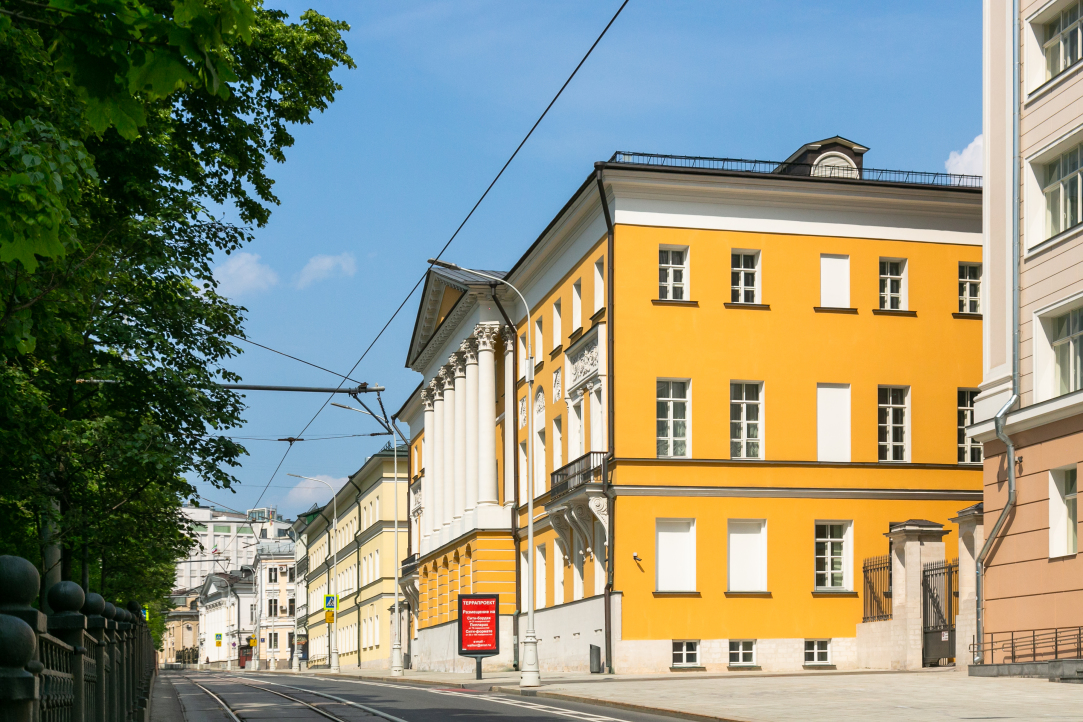
The Government’s decree on providing for the activities of the International BRICS Competition Law and Policy Centre as part of HSE University was issued last week. Previously, this department had operated at the HSE-Skolkovo Institute for Law and Development, however the Federal Antimonopoly Service of Russia, together with BRICS antimonopoly bodies, initiated the Centre’s restructuring as a stand-alone department. The HSE News Service learned more about the Centre’s work and its research into competition policy.
The International BRICS Competition Law and Policy Centre (BRICS Antimonopoly Centre) has been created to support the sustainable development of antimonopoly law in BRICS countries (Russia, China, India, Brazil and South Africa) and respond to current challenges and promote economic growth. Today, the Centre operates as an expert analysis department of HSE University, replacing the BRICS Antimonopoly Centre, which was launched as part of the HSE-Skolkovo Institute for Law and Development in 2018.
Igor Artemiev, Head of the Federal Antimonopoly Service of Russia (FAS Russia)
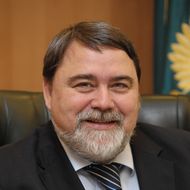
For us, it is very important that BRICS Antimonopoly Centre reaches a new level and gets support from the Russian Government. Our experience of joint projects with BRICS partners in the food and digital markets demonstrates that we are able to find areas of mutual interest and achieve consensus on very complicated issues, as well as learning from each other. In order to achieve our common goal of protecting competition as part of BRICS, we have to work together on it, and as part of this process, an important role is played by the BRICS Antimonopoly Centre, which has provided academic research for BRICS competition bodies for several years. The Centre’s operations will be an incentive to discuss the role of competition policy at an international level and will bring us closer to appropriate responses to the key challenges of economic and social development in a rapidly changing world.
Over recent years, FAS Russia, together with HSE-Skolkovo Institute for Law and Development, has actively worked on reinforcing cooperation within BRICS countries in the anti-monopoly sphere. For example, in June 2015, the first BRICS conference on antimonopoly law and policy took place in St. Petersburg. This event was organized jointly by HSE-Skolkovo Institute for Law and Development, University College London Centre for Law, Economics and Society, and FAS Russia.
In 2016, the first framework agreement on cooperation between the BRICS countries on competition protection was signed in St. Petersburg. The Working Group on global food chains which was created following this became a pilot project for cooperation between BRICS antimonopoly bodies. The Institute provided expert research support for the Group’s activities. And on July 23, 202, BRICS countries’ heads of competition authorities met online.
Andrey Zhulin, Vice Rector, HSE University Director for Expert Analysis
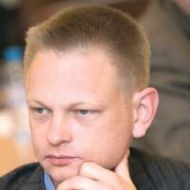
The Centre was born as a research initiative by the HSE-Skolkovo Institute for Law and Development. In just a few years, it has become a powerful academic platform bringing together leading competition experts, from BRICS countries and beyond, who share the values of the centre’s team. Research papers published by the BRICS Antimonopoly Centre, on the food market with a focus on technological changes in agricultural industry, and on competition in the digital economy, have had a big impact on the vision of these sectors, both in public administration, and in terms of business development in Russia and other BRICS countries.
Andrey Zhulin emphasized that the Centre’s research projects have high degree of practical relevance and have already become the foundation for several legislative initiatives in these spheres. As an example, he mentioned the fifth antimonopoly pack, developed by the HSE-Skolkovo Institute for Law and Development team, which adapts Russian competition law to the challenges of the digital economy, as well as offering a ‘new perspective on selection and seed-growing industry in the country’, developed by the HSE Centre of Technology Transfer, which, in turn, has grown from the BRICS Antimonopoly Centre food project. ‘I am very hopeful that the Centre will continue to create new ideas and concepts, which will be practically implemented in our country’, the Vice Rector summarized.
From its very foundation, the BRICS Antimonopoly Centre has been involved in the global research agenda and working with the participation of leading international scholars. Ioannis Lianos, UCL professor, was a leading research fellow at HSE-Skolkovo Institute for Law and Development and played a major role in the launch of BRICS Antimonopoly Centre. Today, Prof. Lianos is President of the Hellenic Competition Commission.
To implement one of the Centre’s key projects – research on new approaches to competition regulation in digital economy – an International Expert Council was formed to include globally renowned scholars and professionals. It is headed by Eleanor Fox, Professor at New York University, and Joseph Stiglitz, Columbia University Professor and Nobel Prize winner. The full list of Council members is available on BRICS Antimonopoly Centre website.
National competition authorities across the world are increasingly concerned about the growing concentration of capital and other resources, including data and technology, in the hands of fewer and fewer players. For BRICS countries, the problems of growing inequality and economic stagnation are more pressing than for developed economies. That’s why, according to the participants of the July 23rd conference, the key mission of the BRICS Antimonopoly Centre should be to promote the development agenda and to reinforce the role of competition regulation in overcoming the global economy imbalance. Representatives of BRICS countries’ competition authorities are highly appreciative of the centre’s work. Alexandre Barreto de Souza, president of the Administrative Council for Economic Defense (CADE), Brazil, said: ‘I believe, this centre is an essential initiative for our countries, which will give us an opportunity to have an alternative perspective’.
Tembinkosi Bonakele, Commissioner of the South African Competition Commission
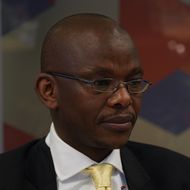
We fully support the work of the Antimonopoly Centre and are very interested in its research on the issues of food and digital markets. The highly relevant digitalization problem needs thorough development and we hope that the Centre will launch new research projects on this theme.
Over the last few years, the leading universities of BRICS countries – BRICS Antimonopoly Centre partners – have actively participated in the Centre’s main research projects: on global food chains and on new approaches to antitrust regulation in the digital economy.
At the online meeting of BRICS countries’ competition authorities, Alexey Ivanov, Director of the International BRICS Competition Law and Policy Centre, spoke about the centre’s operations over the last five years and its plans up to the end of 2022. According to Alexey Ivanov, the Centre’s focus areas for the next three years include the second stage of its study on global food chains, with an emphasis on global grain traders’ oligopoly, an expansion of the digital project in the context of the new pandemic reality, an empirical study on joint antitrust authorities’ effort to fight cross-border cartels – its preliminary results will be presented at UNCTAD international conference in October 2020 in Geneva, and a new big research project on the problems of competition on pharmaceutical markets.
The pharma markets project will continue the Centre’s research work in cooperation with antitrust authorities. It includes three key focus areas: analysing the structural problems of the global pharmaceutical market, which have become most evident during the pandemic; anti-competition practices of buying competitors’ achievements, so-called ‘killer acquisitions’; problems of decreasing the market entrance barriers for generic drugs and, largely, the problems of increasing drugs’ accessibility by antitrust methods.
Alexey Ivanov, Director of the HSE — Skolkovo Institute for Law and Development
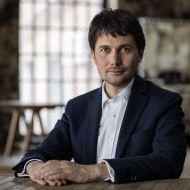
The Centre’s work has again demonstrated that Russian research teams can become drivers of research cooperation on the international agenda. Furthermore, this cooperation is has increasing practical value. One of the outcomes of the food project has been changes in approaches to market concentration agreements’ coordination on developing market globally. With its discussion on digital economy, the Centre has pushed BRICS antitrust authorities towards real steps on regulation transformation, which in Russia, resulted in the development of the fifth antimonopoly law package and the change of several approaches in law compliance practices. Similar legislative initiatives, at the suggestion of our partners, are already being considered in India and China.
The next BRICS conference on competition will take place in China, Alexey Ivanov said. ‘China is facing anti-competition pressing from USA and other Western countries. They understand that they can rely on antitrust regulation in order to smoothen the existing economic inequality’, Mr. Ivanov explained.
‘Today’s world has a clear request for justice, for changes in the architecture of the global economy, and this request can’t be ignored. Antimonopoly law can become an effective tool to meet this request, if it is actively and consistently applied by our countries, which represent almost half of the global population and economic power’, Alexey Ivanov summarized.
Luigi Zingales, a globally renowned economist, professor at Chicago Booth School of Business, who was invited by the Centre to the 6th BRICS competition conference, commented on the ‘digital project’ during his visit to Moscow: ‘BRICS Antimonopoly Centre has done a huge work on preparing this report. What I expect from this project is particular suggestions on coordinating the effort of BRICS countries’ competition authorities’.
The plan for the future is that the Centre will become in an international organization, similar to the OECD Competition Committee. Its work will include collecting and analysing information from antimonopoly authorities and finding best practice, but first of all – preparing recommendations and elaborating approaches to competition polity, which reflect the interests of BRICS economies’ development. Gan Lin, Vice Minister of China’s State Administration for Market Regulation, said at the meeting that she supports the Centre’s reform in an international organization.
Experts’ photos: Fas.gov.ru
Andrey B. Zhulin
Vice Rector, HSE University Director for Expert Analysis
Alexey Ivanov
Director of the HSE — Skolkovo Institute for Law and Development
See also:
HSE Researchers to Develop BRICS Exchange System Together with Chinese Experts
HSE University International BRICS Competition Law and Policy Centre and the Competition Policy and Assessment Centre founded by the State Administration for Market Regulation of China signed a cooperation agreement. The parties agreed to come up with proposals for the development of exchange trade in goods and raw materials between Russia, China, and the BRICS countries.
‘What Makes BRICS Effective Is Its Diversity’: HSE University Representatives Begin Work at EEF
HSE University Vice Rector Victoria Panova spoke at the Eastern Economic Forum (EEF 2024) that began in Vladivostok. The topic of her speech was the expansion of BRICS.
'Staying Open to New Challenges and Opportunities Is Crucial'
The Tenth BRICS Youth Summit was held in Ulyanovsk from July 22 to 26. The event was attended by more than 200 early-career professionals from Brazil, India, China, Egypt, Iran, the United Arab Emirates, Saudi Arabia, Ethiopia, South Africa, and Russian regions. Participants gathered to discuss current global issues and explore opportunities for youth collaboration. Students of HSE University who attended the Youth Summit shared their impressions with HSE University Life.
HSE University Launches Consortium of BRICS Law Schools
The HSE Faculty of Law hosted an online meeting with law schools and expert centres from BRICS countries. The purpose of the event was to join efforts to advance legal science and practice for the benefit of the organization. To this end, at the initiative of the Dean of the Faculty of Law Vadim Vinogradov, a Consortium of BRICS Law Schools was established, comprising representatives of leading higher education institutions from a number of countries.
‘At HSE University I Had the Opportunity to Meet the Best Academics’
In April 2024, HSE School of International Regional Studies of the Faculty of World Economy and International Affairs organised a round table ‘Russia and the Most Influential Countries of the Global South: Comparing Approaches to the New International Political and Economic-Financial Order’. Seyedmohammad Seyedi Asl, Research Fellow at the School of International Regional Studies, spoke to HSE News Service on his report ‘Global South, BRICS, and Iran's Foreign Policy’ presented at the round table, his research interests and impressions of working at HSE University, and living in Moscow.
‘We Work to Create a More Prosperous, Fair, and Safe World’
On July 3–4, 2024, the IX BRICS Civil Forum was held in Moscow for the first time since the association was expanded by five new countries in January 2024. Participants emphasised the importance of personal interaction between public figures, civil activists, as well as the work they do to strengthen and enrich friendly relations between BRICS countries, based on mutual respect. The forum was organised by the BRICS Expert Council–Russia, which is established at the HSE University.
BRICS Countries Support HSE University’s Project to Launch Fair Competition Platform
A meeting of the BRICS Coordination Committee on Antimonopoly Policy was held in Geneva as part of Russia's BRICS Chairship in 2024. The meeting participants supported a project to launch a BRICS Interstate Platform on Fair Competition, developed by the International BRICS Competition Law and Policy Centre of HSE University and presented by the FAS of Russia as an initiative of the Russian Chairship.
BRICS Academic Forum Held in Moscow
The Forum brought together more than 200 representatives from the expert community across all BRICS countries to discuss the topic ‘BRICS: New Figures at the Global Chessboard.’ The forum was organised by the BRICS Expert Council–Russia, which operates on the basis of HSE University. The event’s opening ceremony featured the representatives of the Ministry of Foreign Affairs, the State Duma, as well as HSE University Rector Nikita Anisimov and HSE Vice Rector, Russian W20 Sherpa Victoria Panova.
HSE Strengthens Cooperation with India and Creates Opportunities for Dialogue between Experts
Following the visit of the HSE University delegation to New Delhi, cooperation agreements with leading Indian universities were finalised. Similarly, a number of expert events, consultations and negotiations on the development of comprehensive strategic cooperation with Bharat took place. The HSE University delegation also participated in the Raisina Dialogue, one of the largest international expert forums.
HSE Hosts Round Table ‘Africa and BRICS: Reflections and Prospects’
On April 15, 2024 HSE University hosted a roundtable discussion ‘Africa and BRICS: Reflections and Prospects.’ The event featured leading experts from the South African Institute of International Affairs (SAIIA) Steven Gruzd and Gustavo de Carvalho and was moderated by HSE Vice Rector and Head of the BRICS Expert Council–Russia Victoria Panova.


